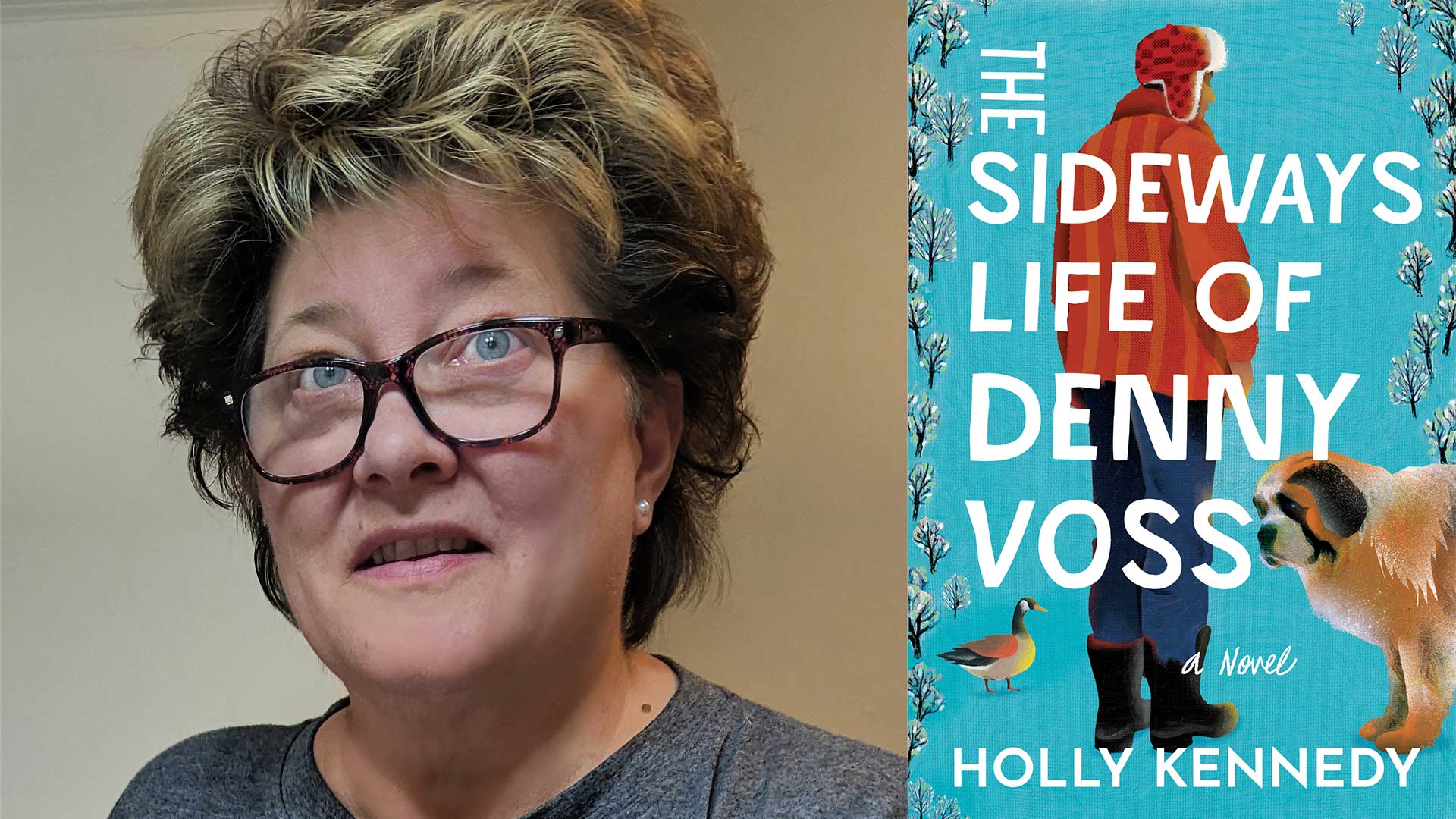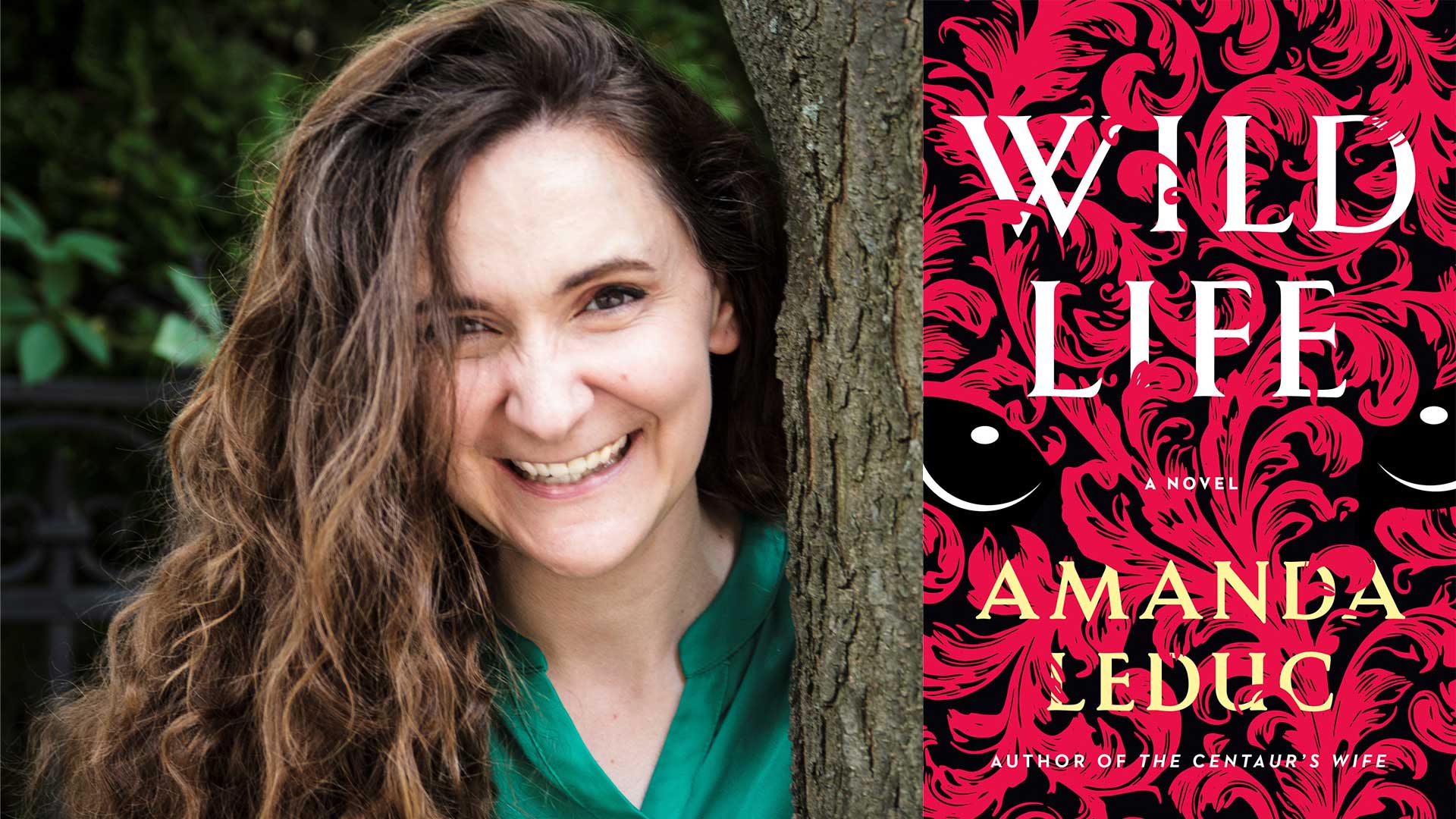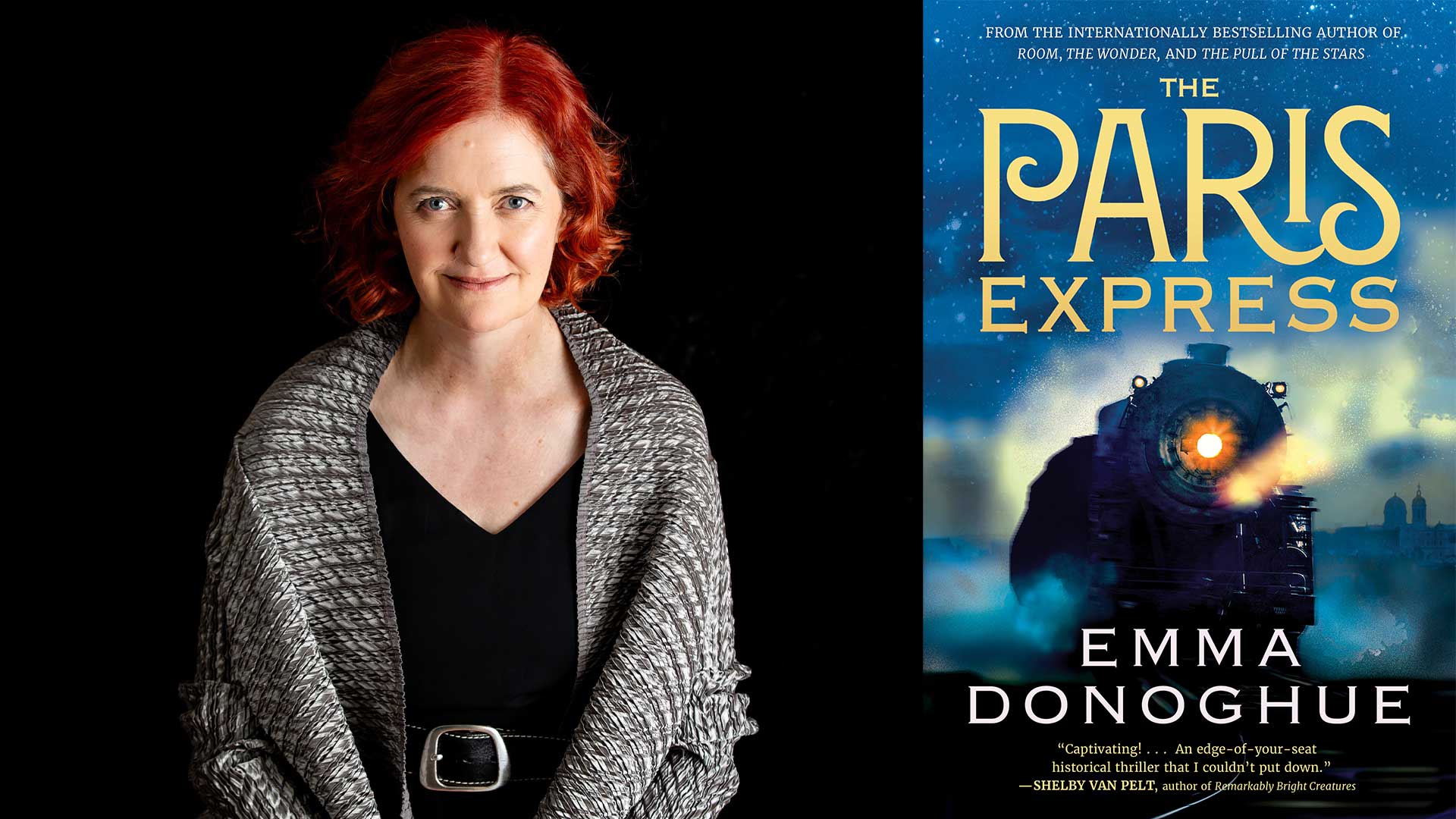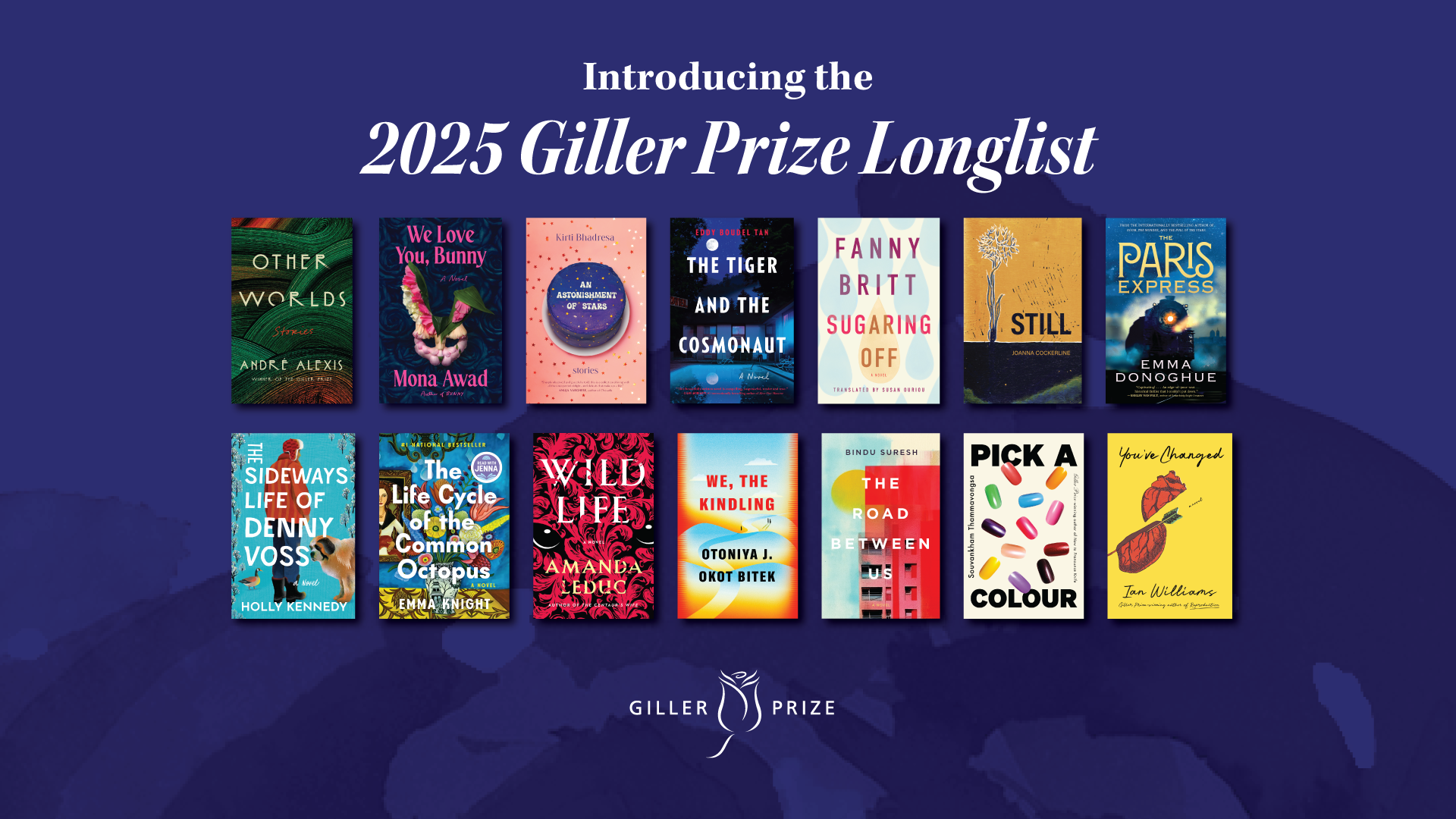
Giller Spotlight: Holly Kennedy
Holly Kennedy’s novel, The Sideways Life of Denny Voss, has been longlisted for the 2025 Giller Prize.
Holly was born and raised in Alberta, Canada. Today, she lives in the foothills of the Rocky Mountains with her family and their Newfoundland dog, Wallace.
She is the author of four novels and her books have been translated into multiple languages. When she’s not writing, you’ll typically find her reading, spending time with family, or (her not-so-secret obsession) watching true crime TV shows like Dateline.
What’s the first piece of writing you had published?
I wrote a short story called The Tin Box and it eventually evolved into my debut novel, which was published in 2005 in Germany, France, Italy, Denmark, and Greece, as well as in North America by Tor/Forge, an imprint of Macmillan Publishing.
When did you first come up with the idea for your book?
I wrote the first 30 pages of The Sideways Life of Denny Voss at a writer’s retreat in 2010 and immediately fell in love with Denny. He was stubborn and funny, and he had an undefinable charm. I couldn’t stop thinking about him; I even dreamed about him. I understood that he was mentally challenged, that he’d been arrested for murder, and that this novel was somehow meant to be his coming-of-age tale, but beyond that, I knew nothing else about his story. It didn’t matter, though, because I also innately knew I didn’t have the chops to write it. Not then, anyhow.
I was intimidated by Denny.
He wasn’t a cardboard character, and I knew I’d have to nail the authenticity of his voice before I could even begin to tackle his story. He had to feel believable on the page. He had to feel real. Could I do that, though? Could I write an entire novel from a mentally challenged man’s point of view? I worried that I’d get it wrong, but Denny wouldn’t leave me alone. I thought about him all the time, and eventually I convinced myself that if author Mark Haddon could write The Curious Incident of the Dog in the Night-Time narrated by a boy with all the characteristics of someone with Asperger syndrome—he’d worked with kids on the autism spectrum but wasn’t autistic himself—then I could be Denny on the page.
The development of Denny’s voice was influenced by a few factors. For example, one of my relatives is cognitively challenged, and many of that person’s traits became Denny’s (their purity and innocence, their trusting outlook on life, how they’re sometimes unaware of the seriousness of situations, and can’t always properly communicate using their own words, so instead they mimic other people’s responses).
It bothers me that society often perceives those with mental disabilities as people who need constant support, as resource-draining members of society who have little to contribute and don’t have the ability to influence or enrich other people’s lives. I wanted Denny, as the protagonist of this novel, to challenge those stereotypes.
There’s a stigma that surrounds both diversity and mental health, even though many of us are broken in some way; for example, one in four adults suffer from a diagnosable mental disorder, me included. I don’t talk about it publicly because I’m intensely private, but I suffer from severe anxiety. There are days when I need hours of preparatory mental time just to do one Zoom call. I also have ADHD, and I struggle with depression. Like Denny, sometimes my mind jumps all over the place, or else I’ll get fixated on something and my mind will start to loop, covering the same ground over and over again.
So…in one way or another, the development of Denny’s voice and his personality was influenced by all these factors. It was important to me that I portray him sympathetically—as different rather than handicapped. I didn’t want to stigmatize him with a label. Denny is a sensitive, lovable man with diminished mental capacity, full stop. Beyond that, I wanted his character to touch people and make them feel (and, perhaps, act) differently when dealing with someone like him. I hoped that getting to know him would encourage people to look at the world from a different perspective. I also hoped his story would spark conversation.
Which authors or books inspired your book?
I’ve always been drawn to a story told in a unique and captivating voice. For example, I admire The Curious Incident of the Dog in the Night-Time by Mark Haddon. In addition, I loved the novel Room by Emma Donoghue, A Man Called Ove by Fredrik Backman, the incomparable memoir The Glass Castle by Jeannette Walls, American Dirt by Jeanine Cummins, and Heather O’Neill’s stunning novel, Lullabies for Little Criminals.
Who’s your favourite character in your longlisted book and why?
Denny Voss is easily my favorite character, probably because he’s wildly unique in a way that feels authentic to me. He’s also a sweet and enigmatic guy who approaches every situation with kindness, which is a rarity these days. In addition, while writing the book from Denny’s point of view, I came to realize how much a ‘sense of community’ is missing in many people’s lives today and how much I wish that wasn’t the case.
What’s the last great book you read by a Canadian author?
I only get to choose one?! That’s tough. I recently read The Berry Pickers by Amanda Peters and it was so good. Over the past year, however, I’ve also re-read A Complicated Kindness by Miriam Toews, The Book of Negroes by Lawrence Hill, and The Sisters Brothers by Patrick deWitt. In my opinion, each of these novels is a masterpiece.
Share this article
Follow us
Important Dates
- Submission Deadline 1:
February 14, 2025 - Submission Deadline 2:
April 17, 2025 - Submission Deadline 3:
June 20, 2025 - Submission Deadline 4:
August 15, 2025 - Longlist Announcement:
September 15, 2025 - Shortlist Announcement:
October 6, 2025 - Winner Announcement:
November 17, 2025




